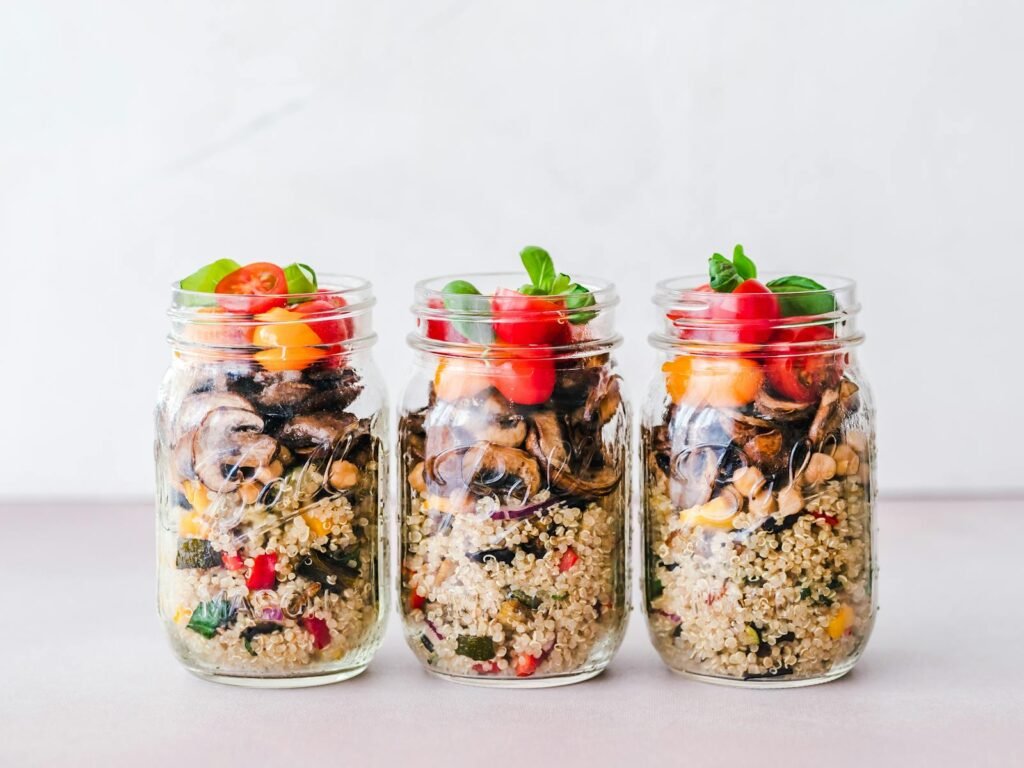Pregnancy brings many changes, including the need for extra nutrients. You might wonder about taking supplements during your first trimester.
Prenatal vitamins and mineral supplements can help support your health and your baby’s growth in these early months.
Many pregnant women take folic acid supplements in the first trimester. This nutrient helps prevent certain birth defects. You may also need extra iron to make more blood for your growing baby.
Your doctor can guide you on which supplements are right for you.
It’s important to choose the right supplements and take them safely. Some herbs and high doses of certain vitamins can be harmful.
Talk to your healthcare provider before starting any new supplements. They can help you make the best choices for you and your baby’s health.
The Role of Prenatal Vitamins in the First Trimester
Prenatal vitamins play a key part in supporting a healthy pregnancy during the first trimester. They help fill nutritional gaps and provide important vitamins and minerals for early fetal growth.
Understanding Nutritional Gaps
During pregnancy, your body needs extra nutrients to support your growing baby. Even with a balanced diet, it can be hard to get enough of certain vitamins and minerals.
Prenatal vitamins help fill these gaps.
Some common nutritional shortfalls in pregnancy include:
- Folic acid
- Iron
- Calcium
- Vitamin D
Prenatal vitamins are designed to meet these increased needs. They contain higher amounts of key nutrients compared to regular multivitamins.
Taking a prenatal vitamin before and during early pregnancy may lower the risk of some birth defects. It’s best to start taking them at least a month before you get pregnant, if possible.
Key Vitamins and Minerals for Early Pregnancy
Several nutrients are especially important in the first trimester:
Folic acid: This B vitamin helps prevent neural tube defects. These are serious birth defects of the brain and spine. You need 400-800 mcg daily.
Iron: Your body uses iron to make extra blood for you and your baby. It also supports your baby’s growth and brain development. Aim for 27 mg per day.
Calcium: This mineral helps build your baby’s bones and teeth. You need 1,000 mg daily.
Vitamin D: It works with calcium to build your baby’s bones and teeth. Vitamin D levels in early pregnancy may affect pregnancy outcomes. The recommended amount is 600 IU per day.
Essential Nutrients for Fetal Development
Certain nutrients play key roles in your baby’s growth during the first trimester. These nutrients help form the building blocks for your baby’s brain, spine, and other important body systems.
Folic Acid and Neural Tube Formation
Folic acid is a B vitamin that’s essential for fetal development. It helps prevent birth defects of the brain and spine, known as neural tube defects. You need extra folic acid early in pregnancy, often before you even know you’re pregnant.
The recommended daily intake is 400-800 micrograms. You can get folic acid from:
- Leafy green vegetables
- Fortified cereals
- Beans
- Citrus fruits
Many doctors suggest taking a prenatal vitamin with folic acid. This ensures you get enough, even if your diet falls short some days.
The Importance of DHA and EPA
DHA and EPA are types of omega-3 fatty acids. They help your baby’s brain and eyes grow. Your body can’t make these on its own, so you need to get them from food or supplements.
Good sources of DHA and EPA include:
- Fatty fish like salmon or sardines
- Fish oil supplements
- Algae-based supplements (for vegetarians)
Aim for 200-300 milligrams of DHA per day while pregnant. If you don’t eat fish often, talk to your doctor about taking a supplement.
Vital Role of Choline
Choline is another nutrient that’s important for fetal brain development. It helps form the structure of brain cells and aids in their signaling. Your body makes some choline, but not enough for pregnancy.
Foods high in choline include:
- Eggs
- Beef liver
- Chicken
- Fish
- Soybeans
The recommended amount of choline during pregnancy is 450 milligrams per day. Many prenatal vitamins don’t contain enough choline, so you may need to focus on food sources or take an extra supplement.
Managing Common First Trimester Concerns
Pregnancy brings changes to your body, especially in the first three months. Let’s look at ways to handle two common issues you might face: constipation and nausea.
Combating Constipation with Magnesium
Constipation can be uncomfortable during early pregnancy. Magnesium supplements may help ease this problem. This mineral softens stools and helps your digestive system work better.
You can find magnesium in foods like:
- Nuts and seeds
- Whole grains
- Leafy green vegetables
If diet alone isn’t enough, talk to your doctor about taking a magnesium supplement. They can suggest the right amount for you. Start with a low dose and drink plenty of water.
Remember, too much magnesium can cause diarrhea. Always check with your healthcare provider before starting any new supplement during pregnancy.
Alleviating Nausea with Vitamin B6
Feeling sick to your stomach is common in early pregnancy. Vitamin B6 can help reduce nausea for many women.
You can get vitamin B6 from foods like:
- Bananas
- Chicken
- Potatoes
If these foods don’t help enough, your doctor might suggest a B6 supplement. The usual dose is 10-25 mg, three times a day. But always ask your healthcare provider first.
Some women find that taking B6 with ginger works even better. You could try ginger tea or ginger candies along with your B6.
Remember, every pregnancy is different. What works for one person might not work for another. Keep talking with your doctor about how you’re feeling.
How to Choose Prenatal Supplements
Picking the right prenatal supplements can make a big difference in your pregnancy health. It’s important to look at quality, how well your body can use the nutrients, and your own needs.
Assessing Quality and Absorption
When choosing prenatal supplements, look for ones that have been tested by third-party groups. These tests check if the supplement has what it says on the label. Look for seals from groups like USP or NSF on the bottle.
Some forms of nutrients are easier for your body to use. For example, folate is often better than folic acid. Iron that is “chelated” or bound to amino acids may be easier on your stomach.
Check the amount of each nutrient. Prenatal vitamins should have enough folic acid, iron, and iodine. They should also have vitamin C and calcium to help your body use iron and build your baby’s bones.
Customizing Supplements to Individual Needs
Your doctor can help you choose the right prenatal vitamins for you. They might suggest extra folic acid if you’re at risk for neural tube defects. If you’re vegetarian or vegan, you may need more vitamin B12 and iron.
Some women can’t take certain forms of iron or have trouble with nausea. In these cases, your doctor might suggest a different type of supplement. Gummy vitamins can be easier to take, but they often don’t have iron.
Prenatal supplements are key for filling gaps in your diet. But they don’t replace healthy eating. Try to eat a mix of fruits, veggies, whole grains, and lean proteins along with your supplements.
Frequently Asked Questions
Pregnancy brings many questions about nutrition and supplements. The first trimester is a key time for your baby’s growth. Here are some common questions about supplements during this period.
What essential nutrients are recommended for a healthy first trimester?
Folic acid is very important in the first trimester. It helps prevent birth defects of the brain and spine. You need about 400-800 micrograms daily.
Iron is also needed. It helps your body make more blood for your growing baby. Aim for 27 milligrams per day.
Calcium supports your baby’s bone growth. Try to get 1000 milligrams daily through food or supplements.
Are there any vitamins pregnant women should avoid during the early stages of pregnancy?
Too much vitamin A can harm your baby. Avoid supplements with high doses of vitamin A, unless your doctor says it’s okay.
Be careful with herbal supplements. Many have not been tested for safety during pregnancy. Always ask your doctor before taking any new supplement.
When is the ideal time to begin taking prenatal vitamins in pregnancy?
It’s best to start taking prenatal vitamins before you get pregnant. This helps build up important nutrients in your body.
If you didn’t start before, begin as soon as you know you’re pregnant. The first few weeks are key for your baby’s growth.
What are the potential risks of not taking prenatal vitamins in the first trimester?
Not taking prenatal vitamins can increase the risk of some birth defects. For example, low folic acid is linked to neural tube defects.
Your baby might not get enough nutrients for healthy growth. This could lead to problems later in pregnancy or after birth.
Which specific prenatal vitamin formulation is most beneficial during the first trimester?
Look for a prenatal vitamin with at least 400 micrograms of folic acid. It should also have iron, calcium, and other key nutrients.
Some brands offer first trimester formulas with extra folic acid. Ask your doctor if these are right for you.
Can certain supplements improve the likelihood of conceiving quickly?
Folic acid may help you get pregnant faster. Some studies show it might increase fertility.
Zinc and vitamin C might also help. They support hormone balance and egg health.
Always talk to your doctor before taking extra supplements to boost fertility. They can help you find the right balance for your needs.





